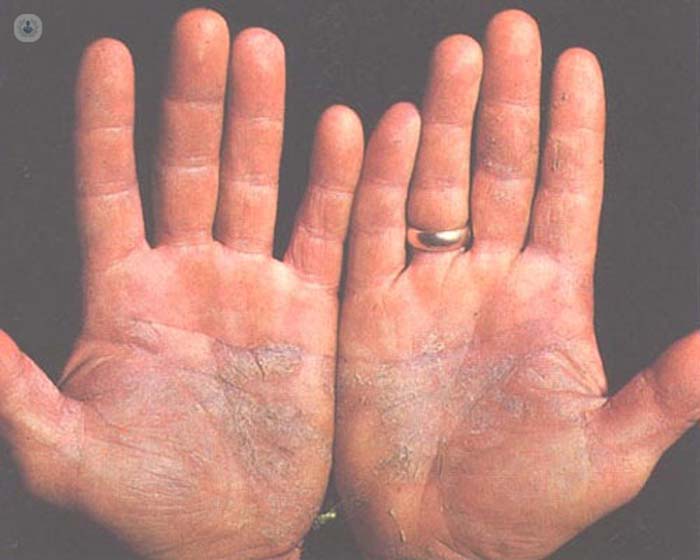New Delhi: Today, 125 million people globally suffer from a serious auto-immune disease called Psoriasis. Psoriasis is a severe, chronic, non-communicable disease (NCD) that dramatically reduces the quality of life of affected individuals, and takes a high mental, emotional, social, and economic toll on them.
Majority of patients with moderate-to-severe psoriasis complain of being subjected to discrimination, humiliation and being stared at in public.
According to the findings of the ‘Clear About Psoriasis’ global survey, 48% of patients said that psoriasis impacted their professional life and 30% stated that psoriasis affected their past or current personal relationships.
Findings show that in India 18% of people with psoriasis have been asked if they are contagious. 36% of people admitted to feeling ashamed of their skin and the way they look.
The lack of hope and self-esteem made most patients believe that achieving clear or almost clear skin is not a realistic goal for them. Psoriatic patients often struggle to receive an accurate diagnosis, have difficulty accessing appropriate treatment and care, and face discrimination and stigma.
It is still not known why psoriasis happens but the most common belief is that genetic factors, stress, skin injury and a faulty immune system triggers this skin problem.
In psoriasis, the immune system mistakenly starts attacking healthy skin cells, accelerating the process and causing the dead skin cells to rapidly build up on the skin’s surface, giving it a raised, scaly, itchy, dry, and red appearance.
There are usually three stages of Psoriasis based on the amount of area of the skin damaged. Psoriasis is categorized as mild when plaques cover less than 3 percent of the body and moderate when they cover 3-10 percent of the body. When the disease affects more than 10 percent of the body, it’s considered severe.
Dr. Abir Saraswat, National Convener, Special Interest Group – Psoriasis, Indian Association of Dermatologists, Venereologists and Leprologists (IADVL), said, “Psoriasis is an immunologically mediated condition largely seen in genetically pre-disposed individuals. Here, the immune system is responsible for attacking some parts of the skin because in those areas, the skin gives out wrong signals. It is important to work with a dermatologist to find treatment that works for you and fits your lifestyle. Treatment can reduce signs and symptoms of psoriasis, which usually makes a person feel better. With treatment, some people see their skin completely clear. Effective treatment can significantly improve quality of life”.
Though non- curable, Psoriasis can be effectively managed if diagnosed in a timely manner. Psoriasis is associated with an increased risk of psoriatic arthritis, lymphomas, cardiovascular disease, Crohn’s disease, and depression. Psoriatic arthritis affects up to 30% of individuals with psoriasis.
Depending upon the stage of psoriasis, the treatment option is determined. The most widely used treatment for psoriasis are topical treatments, phototherapy (light therapy), systemics and biologics. Biologic drugs are considered the most effective treatment options for severe psoriasis. They are protein-based drugs that target those specific parts of the immune system, that are responsible for triggering psoriasis.
While these treatments are very important to fight psoriasis, it is also essential to be empathetic towards patients and encourage them to feel confident. This World Psoriasis Day, let’s pledge to challenge the social stigma against psoriasis patients, so that they talk to a dermatologist and seek clear skin! (ANI)

